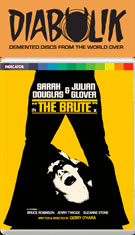
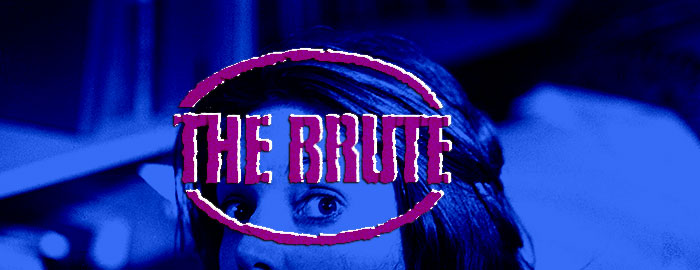


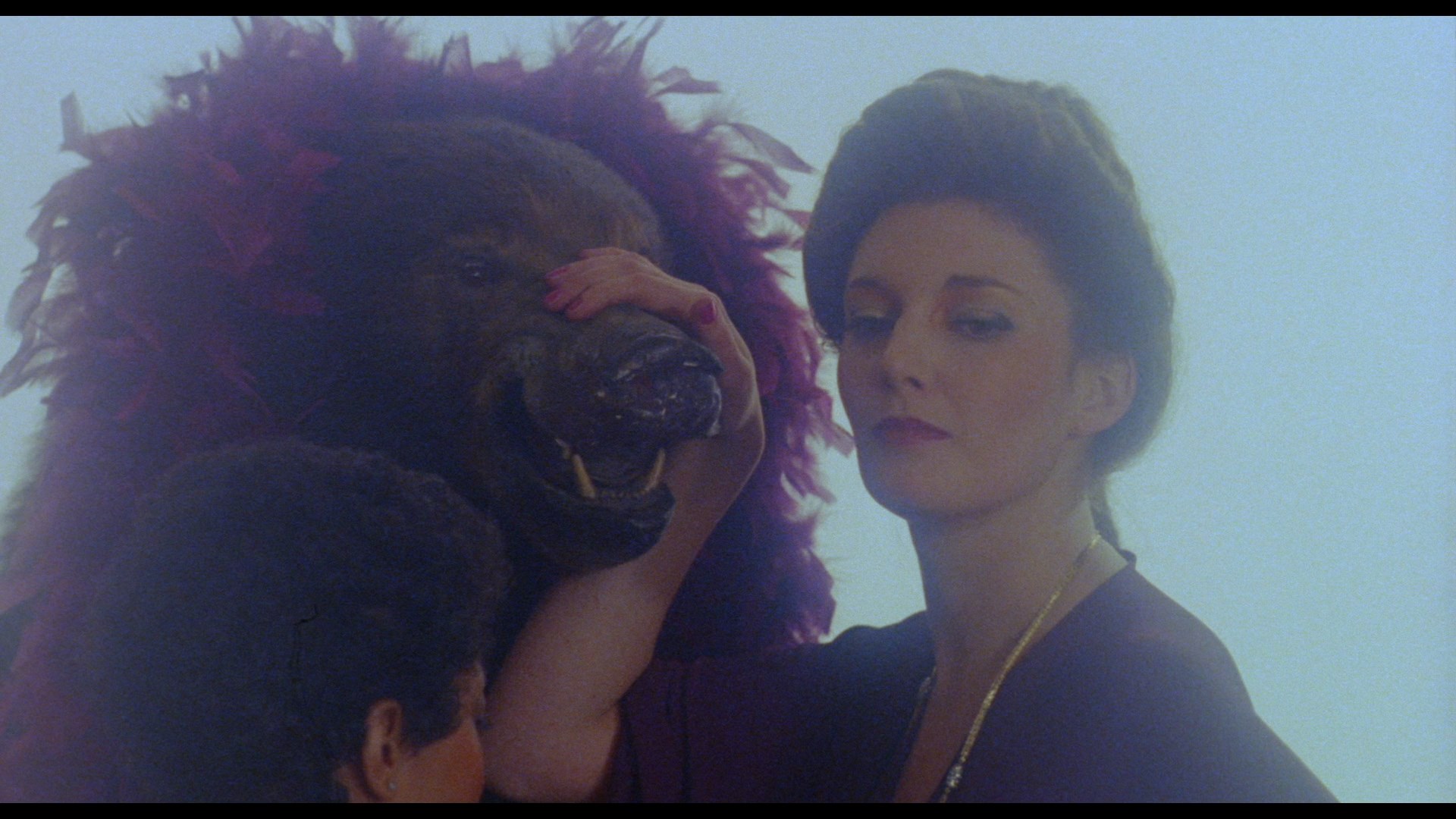 spousal abuse became a mainstream TV issue with The Burning Bed
spousal abuse became a mainstream TV issue with The Burning Bed 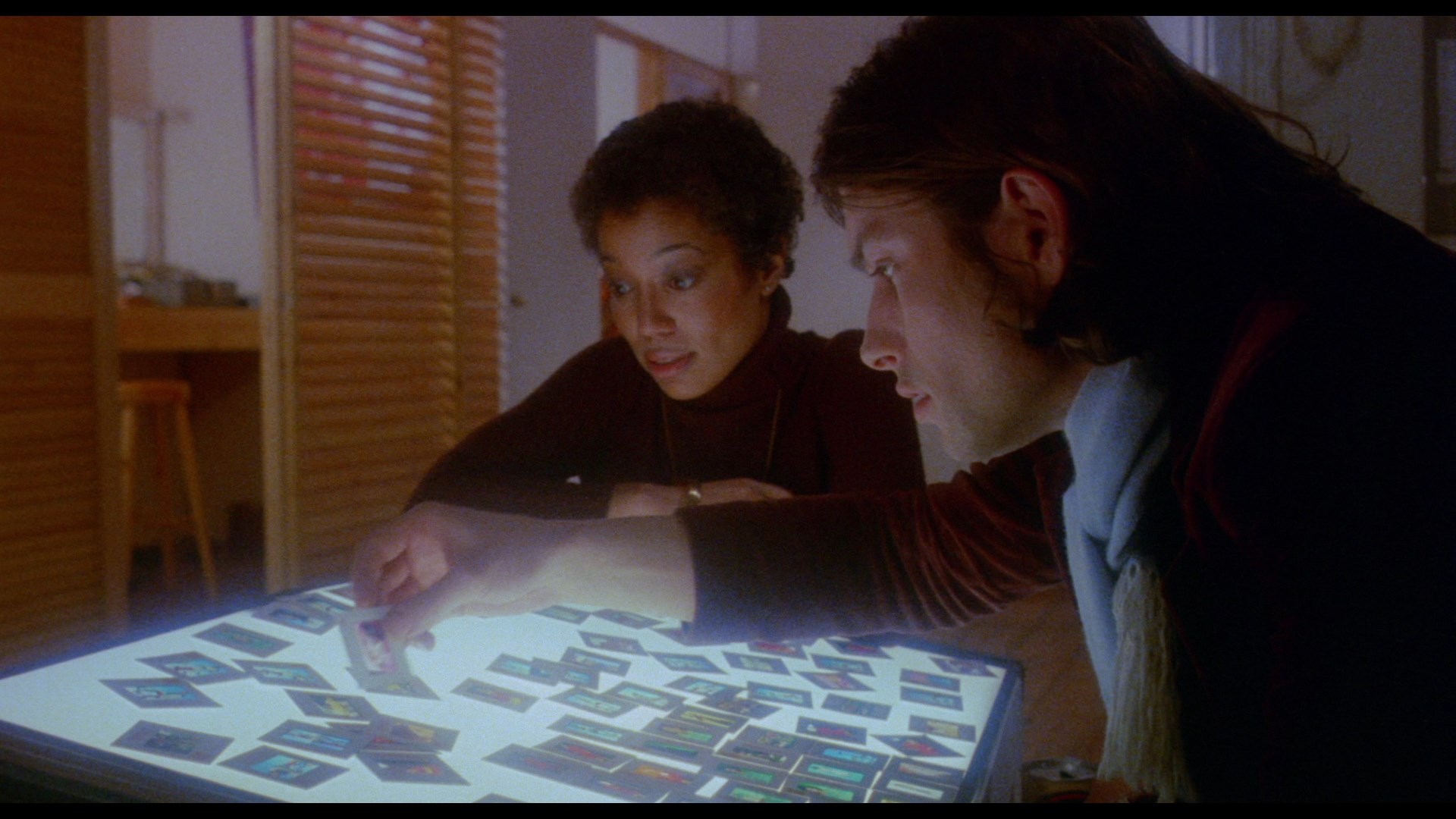 and fodder for Hollywood thrillers with Sleeping with the Enemy, the often overlooked 1977 film The Brute presented its own take on the issue from a British perspective with a mixture of exploitation and social commentary. This proved to be the first real starring vehicle for Sarah Douglas, who went on to become a fan favorite in Superman II, The People That Time Forgot, and Conan the Destroyer, and she makes the most of it with a fascinating performance that now feels very much ahead of its time. This was also something of a gearshift for writer-director Gerry O'Hara, a familiar name to BFI Flipside fans thanks to earlier films like That Kind of Girl, The Pleasure Girls, and All the Right Noises. Anyone who knows those titles is aware O'Hara was a pro at sneaking in social commentary under the guise of mild sexploitation, with the latter taking center stage in his more notorious cable TV staples, The Bitch and Fanny Hill. Despite a few flashes of nudity (the amount of which varies depending on which version you watch), The Brute was never really sold on titillation value and remains a tough watch today with its hard-hitting look at an issue that is still very much an international crisis.
and fodder for Hollywood thrillers with Sleeping with the Enemy, the often overlooked 1977 film The Brute presented its own take on the issue from a British perspective with a mixture of exploitation and social commentary. This proved to be the first real starring vehicle for Sarah Douglas, who went on to become a fan favorite in Superman II, The People That Time Forgot, and Conan the Destroyer, and she makes the most of it with a fascinating performance that now feels very much ahead of its time. This was also something of a gearshift for writer-director Gerry O'Hara, a familiar name to BFI Flipside fans thanks to earlier films like That Kind of Girl, The Pleasure Girls, and All the Right Noises. Anyone who knows those titles is aware O'Hara was a pro at sneaking in social commentary under the guise of mild sexploitation, with the latter taking center stage in his more notorious cable TV staples, The Bitch and Fanny Hill. Despite a few flashes of nudity (the amount of which varies depending on which version you watch), The Brute was never really sold on titillation value and remains a tough watch today with its hard-hitting look at an issue that is still very much an international crisis.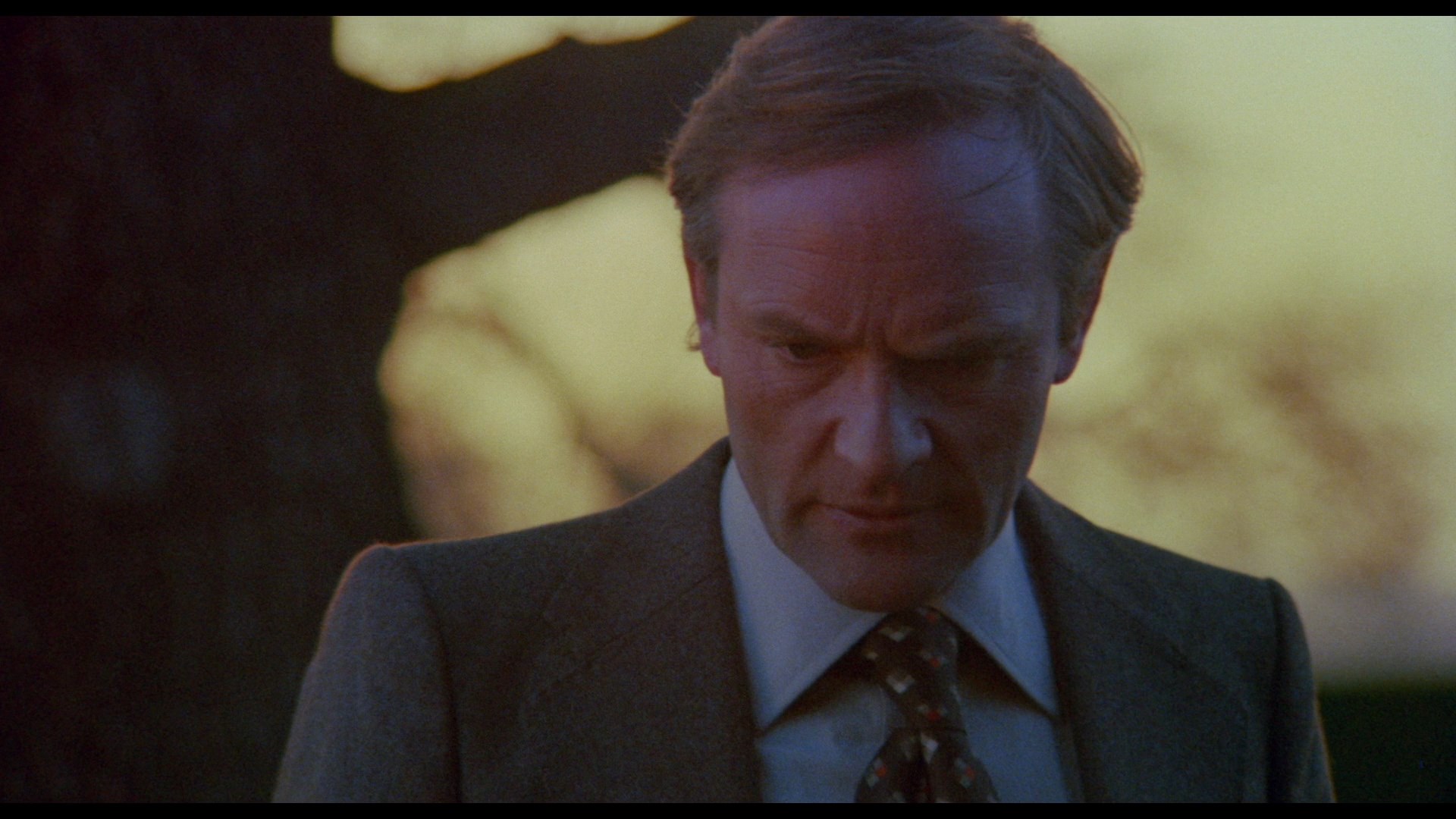 model while staying with her friend, Carrie (Stone), and her photographer boyfriend Mark (Withnail and I's Robinson), who
model while staying with her friend, Carrie (Stone), and her photographer boyfriend Mark (Withnail and I's Robinson), who 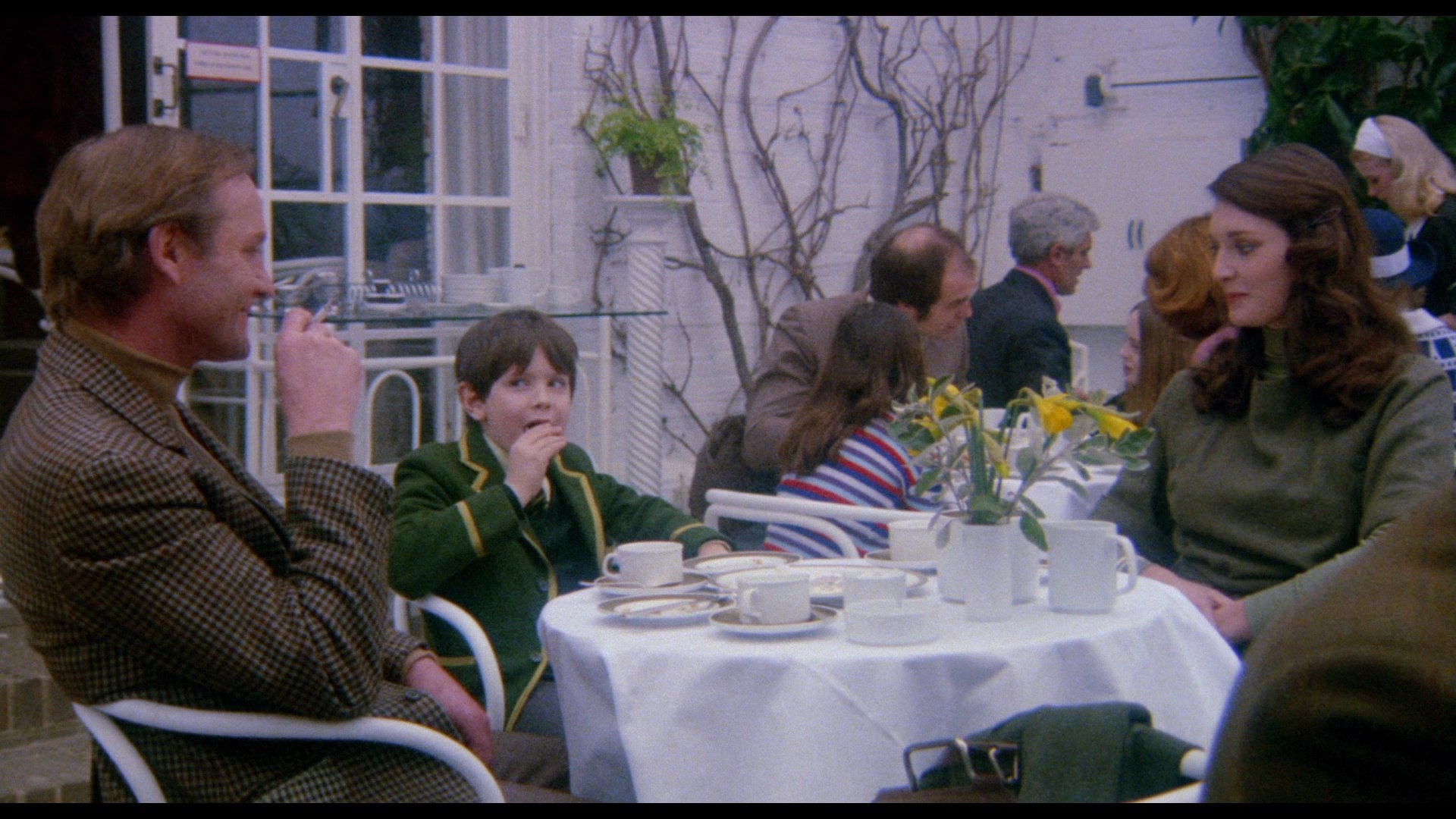 shoots Diane's comeback session and isn't much of a keeper himself. In the process she meets Millie, another abuse victim whom Diane feels the need to protect. With Teddy threatening to take their son out of the country, Diane finds herself coming back to him despite the level of physical danger and has to look for other methods at hand to save herself... before it's too late.
shoots Diane's comeback session and isn't much of a keeper himself. In the process she meets Millie, another abuse victim whom Diane feels the need to protect. With Teddy threatening to take their son out of the country, Diane finds herself coming back to him despite the level of physical danger and has to look for other methods at hand to save herself... before it's too late.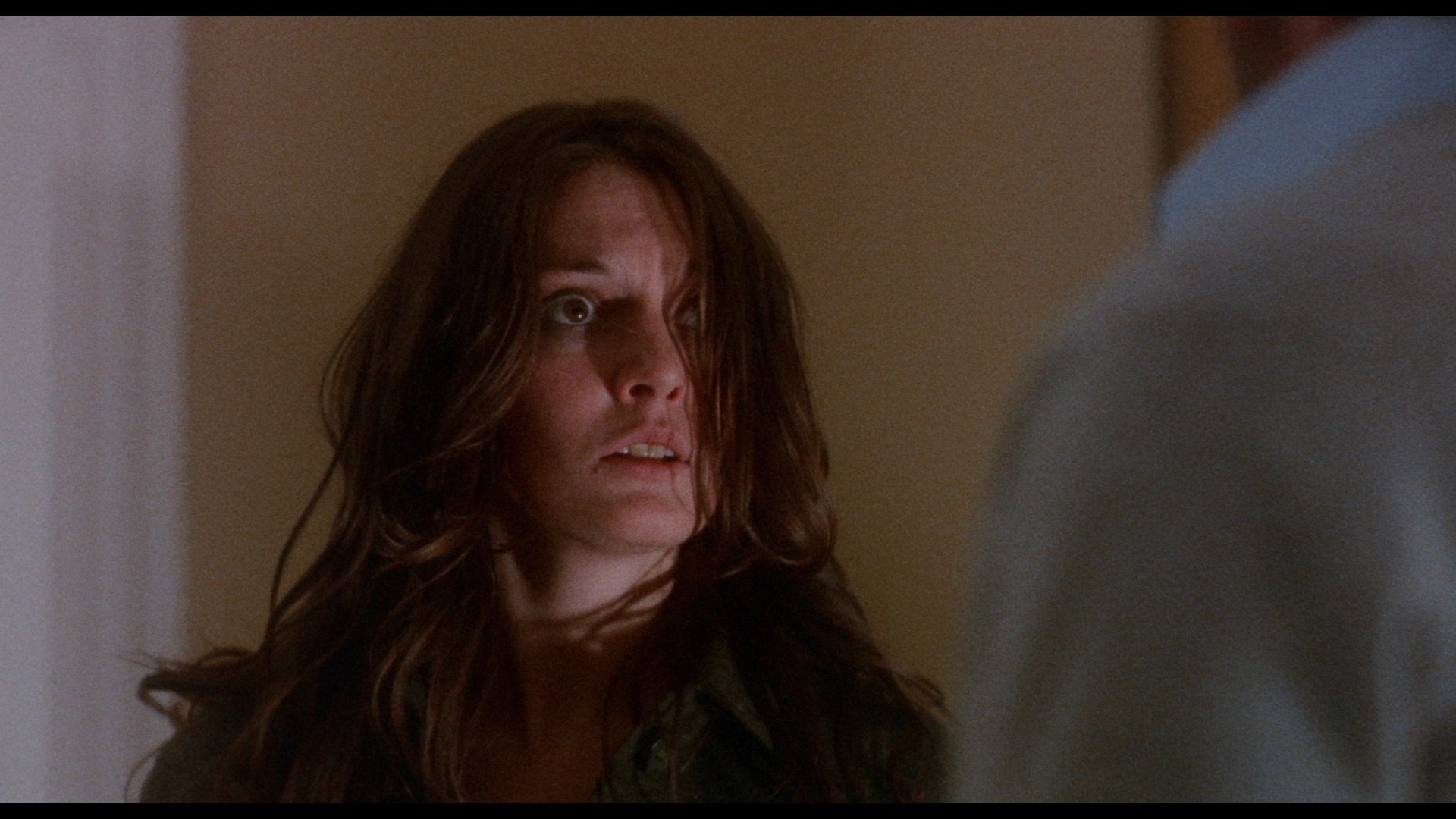 taking on her first major leading role (which requires her to be on screen for almost all of the running time), her own awareness about domestic abuse, and lots of great asides along the way. A new video interview with O’Hara, "Sticks and Stones"
taking on her first major leading role (which requires her to be on screen for almost all of the running time), her own awareness about domestic abuse, and lots of great asides along the way. A new video interview with O’Hara, "Sticks and Stones" 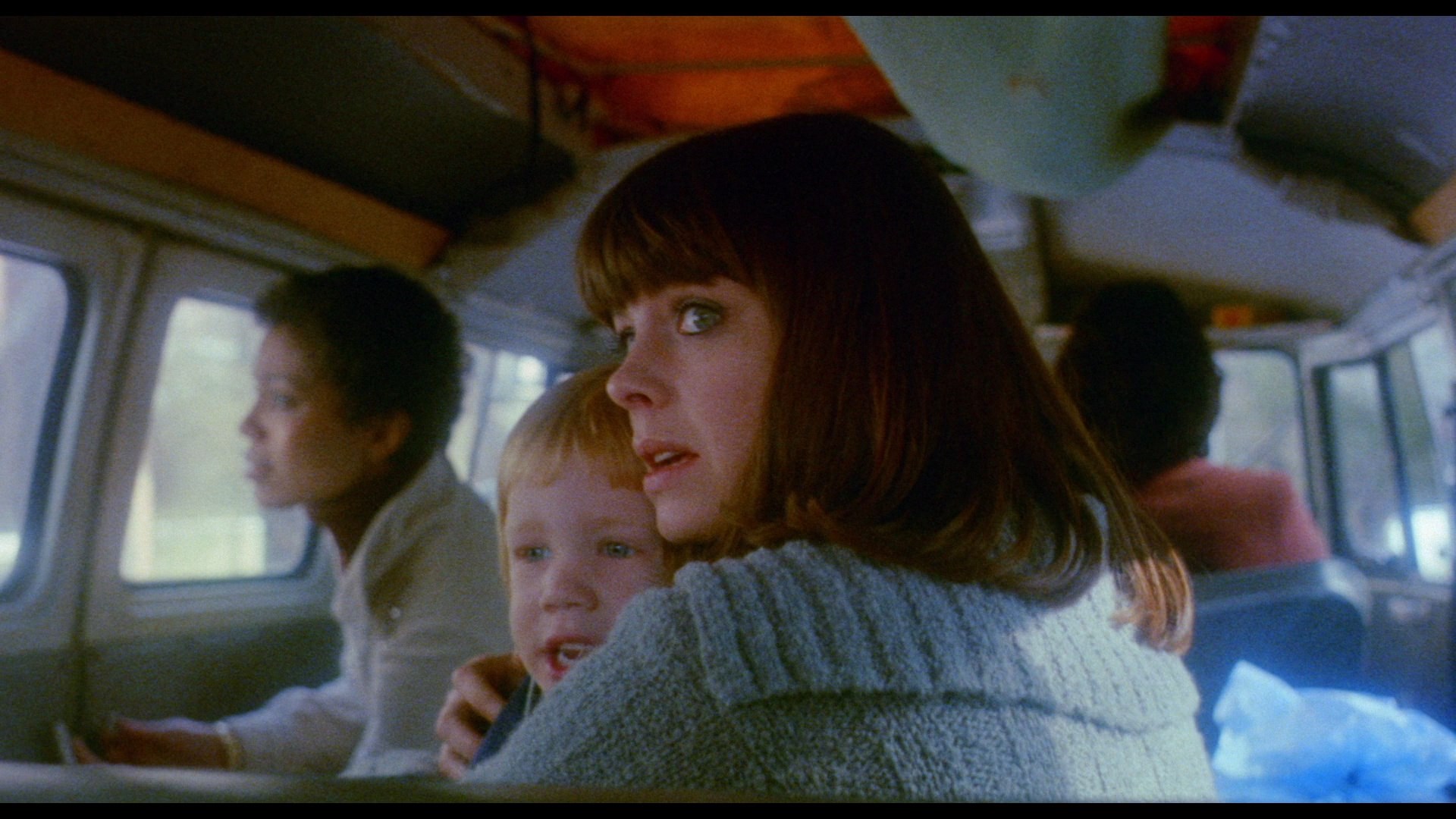 (13m22s), covers the attempts to sell the film at Cannes, his take on the final result, his own real-life brush with an abuser, and rubbing shoulders with the likes of Michael Carreras. An awkward prologue (48s) originally appended to the U.K. release features a guy at a desk explaining this film as a study of a "modern caveman," while 1976's The Sea Can Kill (26m43s) is a surprisingly intense O'Hara short for the Royal Navy about how to survive a disaster at sea -- showing off every tactic you can think of for making it out in the wide open sea. Thankfully this one also comes with English subtitles as some of the frantic dialogue can be tough to make out. A This Week in Britain spotlight for the COI on Erin Pizzey (4m48s) from 1978 is a terrific snapshot of the pioneering founder of the first refuge for abused wives, showing how this much-needed establishment only came into existence rather recently in modern history. Finally the disc includes the U.K. teaser and X-certificate trailer, plus a gallery of 40 stills and promotional material items. The limited edition also comes with the usual robust insert booklet featuring a worthwhile "Why The Brute Matters" essay by Alexandra Heller-Nicholas and Josh Nelson, some volatile press coverage of the film's initial screenings, an interview with fight arranger Roberta Gibbs (who pulled off one of the film's most memorable scenes), and sample critical responses and a look at the O'Hara short film.
(13m22s), covers the attempts to sell the film at Cannes, his take on the final result, his own real-life brush with an abuser, and rubbing shoulders with the likes of Michael Carreras. An awkward prologue (48s) originally appended to the U.K. release features a guy at a desk explaining this film as a study of a "modern caveman," while 1976's The Sea Can Kill (26m43s) is a surprisingly intense O'Hara short for the Royal Navy about how to survive a disaster at sea -- showing off every tactic you can think of for making it out in the wide open sea. Thankfully this one also comes with English subtitles as some of the frantic dialogue can be tough to make out. A This Week in Britain spotlight for the COI on Erin Pizzey (4m48s) from 1978 is a terrific snapshot of the pioneering founder of the first refuge for abused wives, showing how this much-needed establishment only came into existence rather recently in modern history. Finally the disc includes the U.K. teaser and X-certificate trailer, plus a gallery of 40 stills and promotional material items. The limited edition also comes with the usual robust insert booklet featuring a worthwhile "Why The Brute Matters" essay by Alexandra Heller-Nicholas and Josh Nelson, some volatile press coverage of the film's initial screenings, an interview with fight arranger Roberta Gibbs (who pulled off one of the film's most memorable scenes), and sample critical responses and a look at the O'Hara short film.![]()